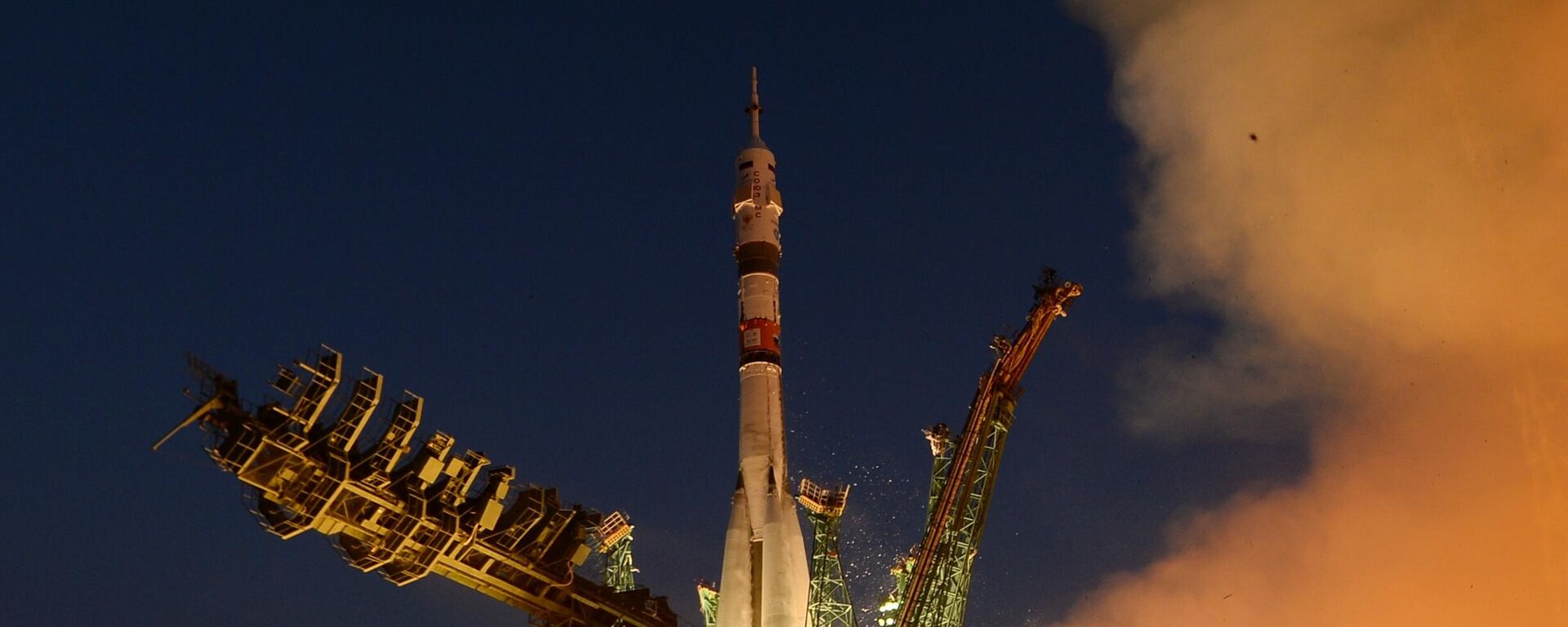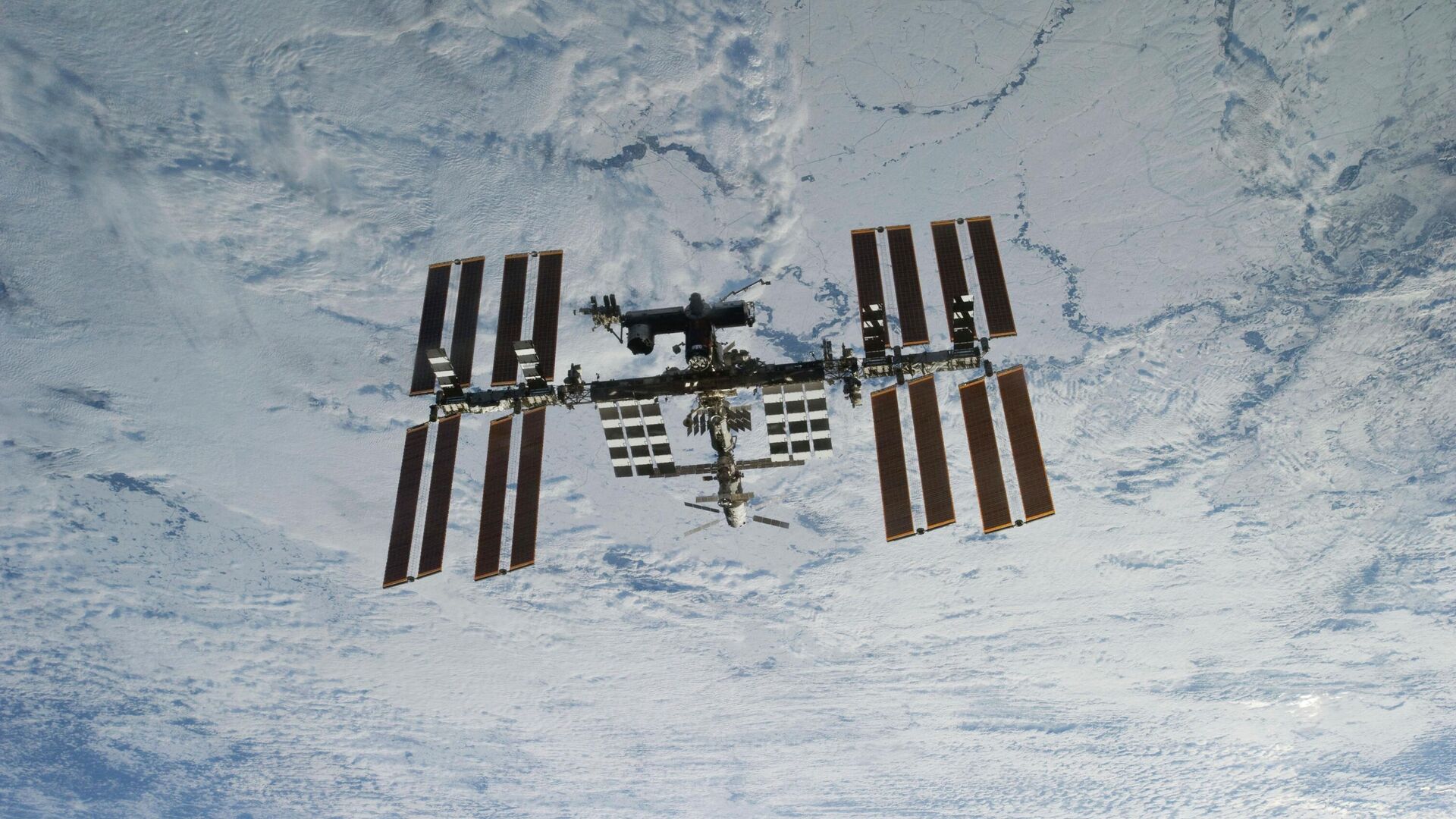https://sputnikglobe.com/20221222/roscosmos-failure-in-soyuz-ms-22s-cooling-system-not-caused-by-meteorite-1105712278.html
Roscosmos: Failure in Soyuz MS-22’s Cooling System Not Caused by Meteorite
Roscosmos: Failure in Soyuz MS-22’s Cooling System Not Caused by Meteorite
Sputnik International
MOSCOW (Sputnik) - The object that caused a leak from the Soyuz MS-22 ’s cooling system was not a micrometeorite, as previously thought, since the object hit... 22.12.2022, Sputnik International
2022-12-22T21:57+0000
2022-12-22T21:57+0000
2022-12-22T21:53+0000
science & tech
roscosmos
soyuz
meteorite
cooling
international space station (iss)
https://cdn1.img.sputnikglobe.com/img/07e6/08/0d/1099548951_0:176:3017:1873_1920x0_80_0_0_3d6050b3288236c1a7659ff1f30f70e3.jpg
"At first we thought that there could be a micrometeorite hit, but then we found that the radiator was hit from the other side," Krikalev said during a news conference organized by NASA. He added that after the depressurization, the refrigerant was completely gone from the cooling system. On Thursday, a leak from the spacecraft’s cooling system occurred due to damage to the outer skin of the ship's instrument and assembly compartment. The failure did not affect the living conditions of the crew, and there is no need for emergency evacuation. To maintain a comfortable temperature in the living space of the Soyuz MS-22, cooled air is supplied from the Russian segment of the ISS. The Soyuz MS-23 reserve spacecraft which originally was scheduled to leave for the ISS on March 16, may be prepared for flight by February 19. However, Roscosmos hopes that the Soyuz MS-22 crew will return to Earth on their ship in the second half of March.
https://sputnikglobe.com/20221222/soyuz-ms-22-leak-caused-by-untraceable-debris-too-small-to-be-detected---roscosmos-1105709771.html
Sputnik International
feedback@sputniknews.com
+74956456601
MIA „Rossiya Segodnya“
2022
Sputnik International
feedback@sputniknews.com
+74956456601
MIA „Rossiya Segodnya“
News
en_EN
Sputnik International
feedback@sputniknews.com
+74956456601
MIA „Rossiya Segodnya“
Sputnik International
feedback@sputniknews.com
+74956456601
MIA „Rossiya Segodnya“
science & tech, roscosmos, soyuz, meteorite, cooling, international space station (iss)
science & tech, roscosmos, soyuz, meteorite, cooling, international space station (iss)
Roscosmos: Failure in Soyuz MS-22’s Cooling System Not Caused by Meteorite
MOSCOW (Sputnik) - The object that caused a leak from the Soyuz MS-22 ’s cooling system was not a micrometeorite, as previously thought, since the object hit the spacecraft not from the side of the Geminid meteor shower, Sergei Krikalev, executive director for human space flight programs at the Russian space agency Roscosmos, said on Thursday.
"At first we thought that there could be a micrometeorite hit, but then we found that the radiator was hit from the other side," Krikalev said during a news conference organized by NASA.
He added that after the depressurization, the refrigerant was completely gone from the cooling system.
On Thursday, a leak from the spacecraft’s cooling system occurred due to damage to the outer skin of the ship's instrument and assembly compartment.
The failure did not affect the living conditions of the crew, and there is no need for emergency evacuation. To maintain a comfortable temperature in the living space of the Soyuz MS-22, cooled air is supplied from the Russian segment of the ISS.

22 December 2022, 18:03 GMT
The Soyuz MS-23 reserve spacecraft which originally was scheduled to leave for the ISS on March 16, may be prepared for flight by February 19. However, Roscosmos hopes that the Soyuz MS-22 crew will return to Earth on their ship in the second half of March.


